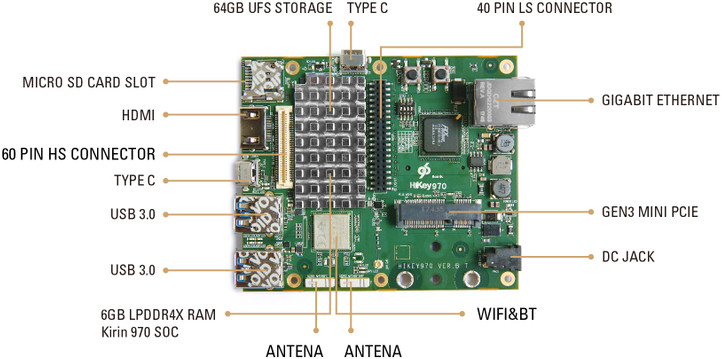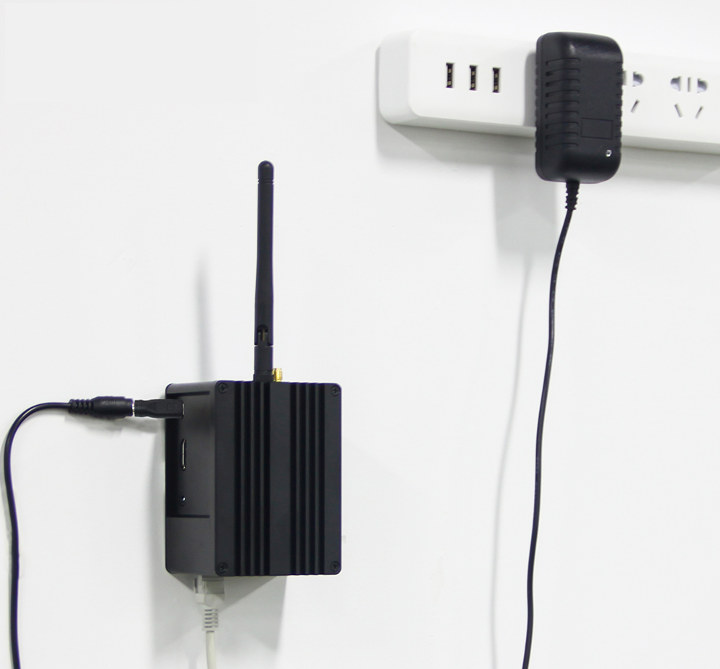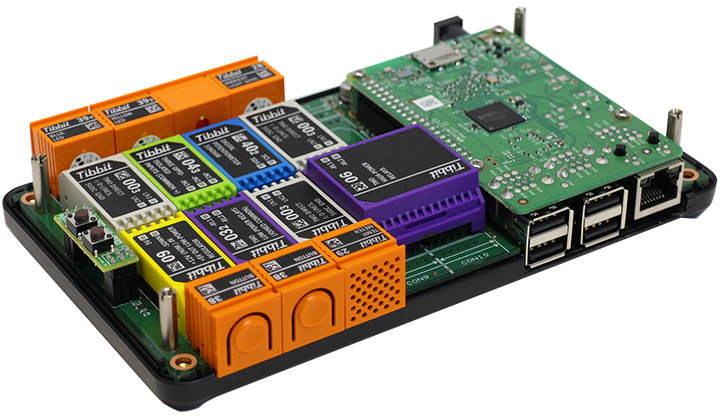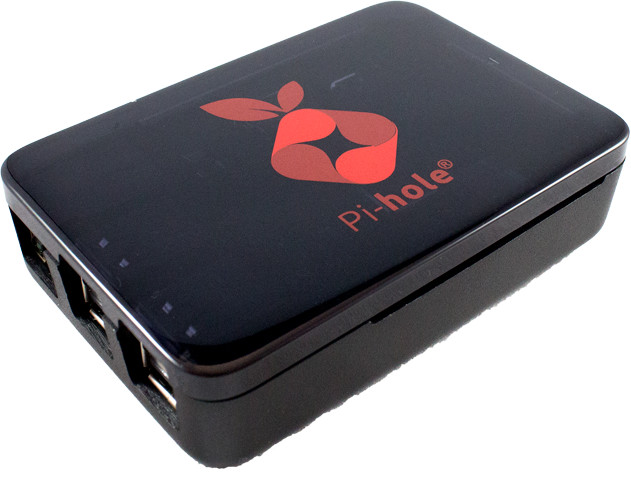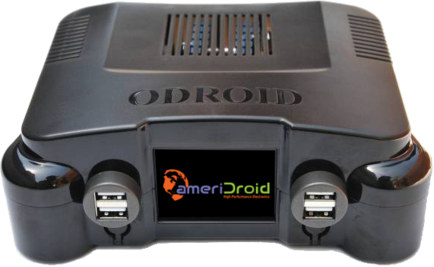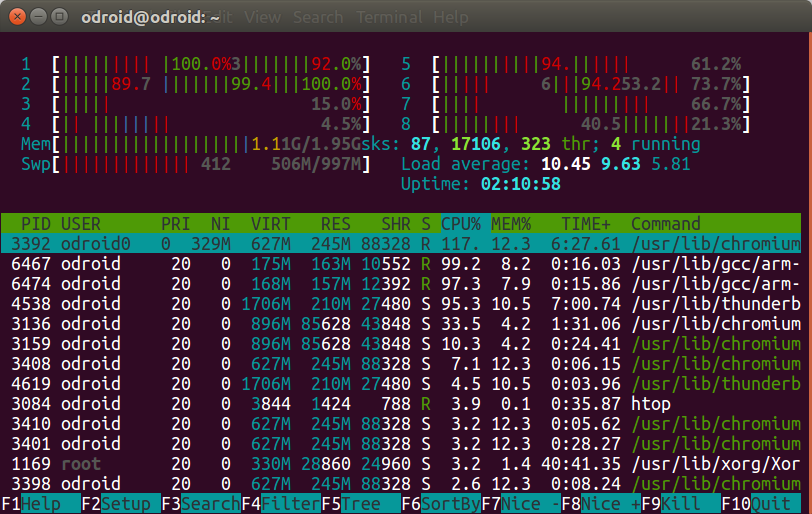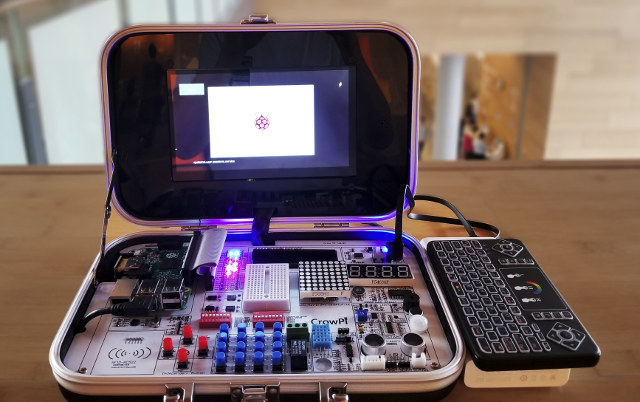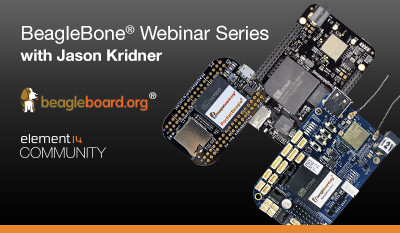Hikey 970 board has impressive specifications with Huawei Kirin 970 SoC featuring an octa-core Arm Cortex A73/A53 processor and an Arm Mali-G72-MP12 GPU, coupled with 6GB LPDDR4x and 64GB UFS storage. It’s also one of the first broadly available developer platforms equipped with a Neural Processing Unit for artificial intelligence applications. However when it launched in April, Hikey 970 documentation was lacking, and despite the board is supposed to run both Android (AOSP) and Linux distributions such as Ubuntu or Debian, so far only AOSP is shown in the download section, with Linux distributions “coming soon”. But if you want to start as soon as possible there are still some good news. First, some documentation for the board has been released on Github, including getting started guides, hardware documentation (schematics, user manual, etc..), and some instructions to build AOSP from source code, and flash it to the UFS storage. If […]
RAK831 Lite is a $200 LoRa / LoRaWAN Gateway based on Raspberry Pi 3 Board
RAK831 is a Semtech SX1301 based LoRa gateway module that was released by RakWireless in 2017. The board has since then be sold as part of the company’s LoRa gateway developer kit with a Raspberry Pi and a MAX-7Q GPS Module. But now RakWireless offers a nicely packaged solution with Raspberry Pi 3 board, RAK831 module, a GPS board, an enclosure, antenna, and power supply which they call RAK831 Lite, and sells for just $199 + shipping ($6.45 extra here).RAK831 Lite gateway main components and specifications: Main board – Raspberry Pi 3 development board with Broadom BCM2837 processor, 1GB RAM, micro SD card slot, Fast Ethernet, 4x USB ports, HDMI output, audio jack Connectivity RAK831 LoRa Concentrator board based on SX1301 chipset RF frequencies – 433, 470, EU868, AS923, AU915, and US 915 Rx Sensitivity – -140 dBm Tx Power – Up to 25.5 dBm at settings 27 dBm SMA […]
Tibbo-Pi is a Wirefree Modular IoT Prototyping Platform for Raspberry Pi Board
Tibbo Project System (TPS) is a modular Linux IoT prototyping platform based on the same Texas Instruments Sitara AM335x processor used in BeagleBone Black or a PocketBeagle boards, and comprised of a main board, Tibbit blocks to add features as needed, and an enclosure. I’ve now been informed the company will be at Computex 2018 to showcase their new products including Tibbo-Pi, following the same concept as Tibbo Project System, but leveraging Raspberry Pi 3 board and ecosystem instead. While an English brochure is said to be available, all information in the webpage listed in the photo above is in Japanese. But basically, Tibbo-Pi is said to be an IoT edge device for industrial use, made for build a prototypes, or small scale production system thanks to a choice a 60 different Tibbit Blocks sensor and I/O module blocks, all wire free. Programming of the system is typically done with with […]
Pi-Hole Kit is a Raspberry Pi based Ad Blocker
If you don’t like getting tracked or see ads, it’s normally easy enough to install an ad blocker plugin in your web browser. But if you want to save some resources on your computer(s) and/or prevent online ads on other devices – including TVs – on your local network, it’s possible to do so via an external device / router using software such as Pi-Hole that can be installed on a Raspberry Pi board (or other Linux machines) in order to filter ads before they even get to your computer. This would normally require you to get your own hardware, enclosure, flash the firmware on a board, and install Pi-Hole yourself. That should easy enough for most regular readers of this blog, but there’s no an option for less tech-savvy user, as Pi Supply and Pi-Hole have partnered to launch the Pi Hole Kit with everything in one packages and […]
XU4Q Retro Gaming System Runs ODROID GameStation Turbo, Sells for $150 and Up
One of the use case for little Arm Linux boards is retro gaming thanks to open source projects like RetroPie, RetrOrangePi, Lakka, and others. To get a complete & usable system, it’s possible to purchase console kits, enclosures, or even complete game consoles running one of such emulators. This morning I’ve come accross another option, as Ameridroid is now taking pre-order for XU4Q Retro Gaming System for $149.95 and up. As it name implies, the console is based on ODROID-XU4Q, the fanless version of ODROID-XU4 board, which with its Exynos 5422 octa-core processor and 2GB RAM will be much more powerful than Raspberry Pi 3 boards, and most other boards on the market. The kit also includes OGST Gaming Console, GameSir G3w analog joystick controller, a power supply, and a 16GB microSD boot media flashed with ODROID Game Station Turbo based on Debian. If you already own an ODROID-XU4(Q) board, […]
Running out of RAM in Ubuntu? Enable ZRAM
Whenever I ran out of RAM on a Linux system, I used to enable swap memory using the storage device to provide an extra bit of memory. The main advantage is that it’s does not require extra hardware, but come at the cost of much slower access, and potential issues or wear and tear, unless you only use it temporary. This week-end, I compiled Arm Compute Library on ODROID-XU4Q board, and the first time it crashed because the system ran out of memory, so I enable swap on the eMMC flash module to restart and complete the build successfully. However, I was told it would have been better to enable ZRAM instead. So what is ZRAM? Wikipedia explains: zram, formerly called compcache, is a Linux kernel module for creating a compressed block device in RAM, i.e. a RAM disk, but with on-the-fly “disk” compression. So it’s similar to swap, expect […]
CrowPi is a Portable Learning Kit for Raspberry Pi 3 B+ / Zero Boards (Crowdfunding)
We have an embarrassment of choices for Raspberry Pi accessories from touchscreen displays, HAT add-ons boards, sensors, breadboard, and so on, as well as good software and support from Raspberry Pi forums. This is all good, but it can be messy with all those jumper cables, and not really portable. Elecrow has a neat solution with the CrowPi learning kit for Raspberry Pi 3 and Raspberry Pi Zero that come with a 7″ display, several sensors, buttons, a breadboard, and more all packed in a small suitcase. Main parts of the kit: 7″ touchscreen display Breadboard with GPIOs status LEDs Input modules – Light sensor, IR receiver, PIR motion sensor, sound sensor, temperature & humidity sensor, touch sensor, ultrasonic sensor, NFC reader, and tilt sensor Output modules – 8×8 LED matrix, 4-digit LED display, I2C LCD1602 display, buzzer, vibration motor, relay module, 9G servo, and stepper motor. Control modules – […]
A 6-Part BeagleBone Webinar for Users, Developers and Education Starts on May 10
The BeagleBone Black and derivatives like PocketBeagle or BeagleBone Green Wireless are still popular development boards, and if you are interested in the platform as a developer, user, or educator, you may learn more about the boards and how to use them in an upcoming BeagleBone webinar series presented by Jason Kridner, the co-founder and board member at BeagleBoard.org Foundation, and element14. The webinar series will start in about 2 weeks with the following schedule: Introduction to BeagleBone – 10th May 2018 @ 11:00 AM (CDT)/17:00 (GMT) BeagleBone for Linux Users – 24th May 2018 @ 11:00 AM (CDT)/17:00 (GMT) BeagleBone for Embedded Developers – 6th June 2018 @ 11:00 AM (CDT)/17:00 (GMT) BeagleBone for Web Developers – 21th June 2018 @ 11:00 AM (CDT)/17:00 (GMT) BeagleBone Blue for Robotics – 12th July 2018 @ 11:00 AM (CDT)/17:00 (GMT) BeagleBone in the Classroom – 26th July 2018 @ 11:00 AM […]


